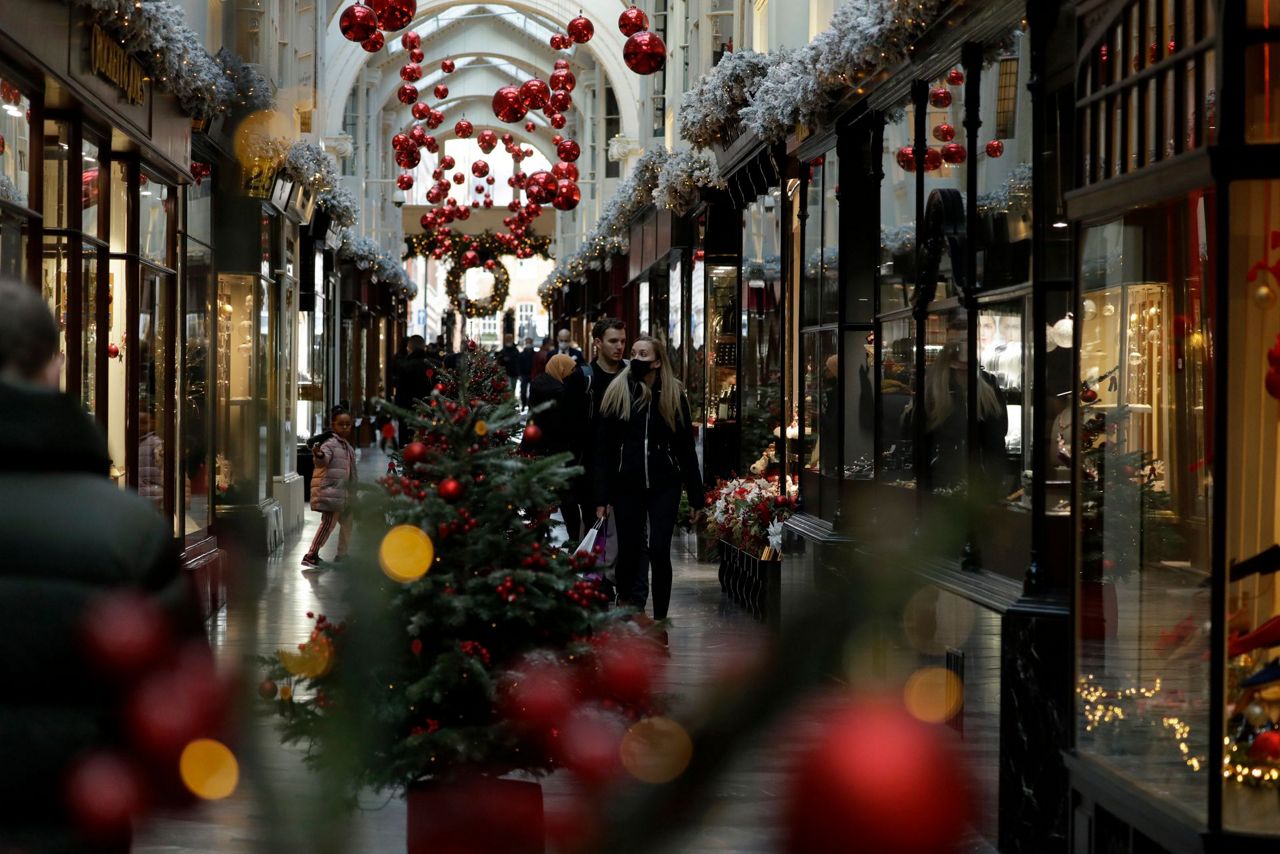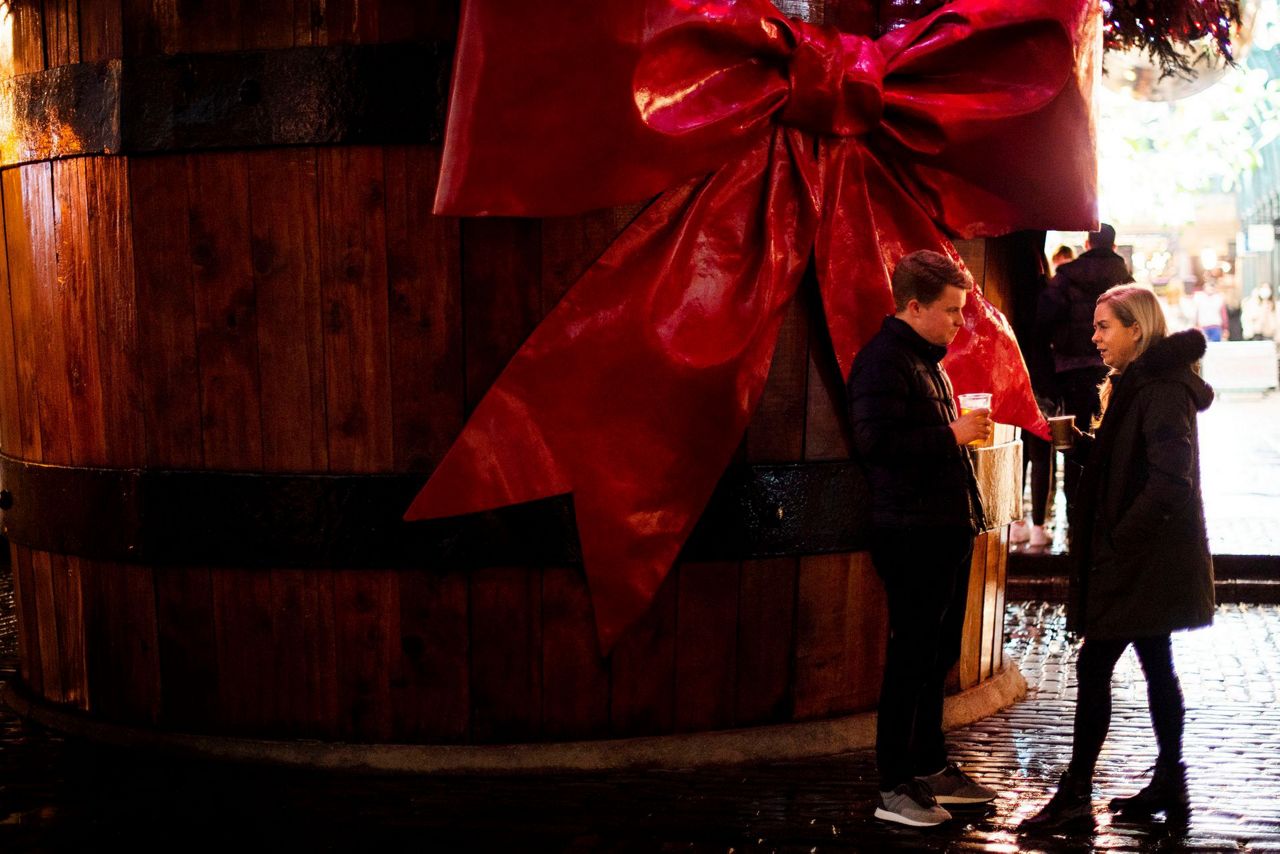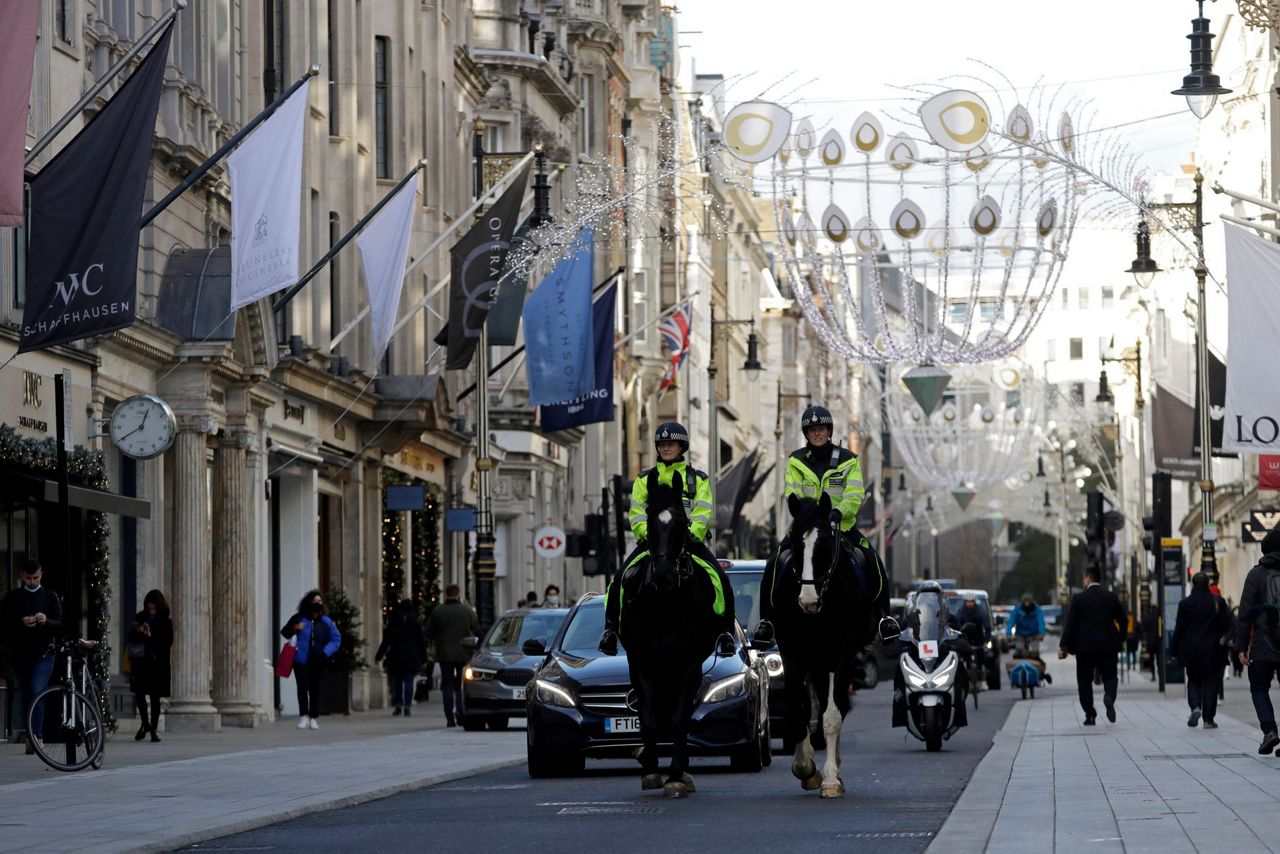LONDON (AP) — Large parts of southern England will be placed under the country’s strictest coronavirus restrictions from this weekend, Britain’s health secretary said Thursday, as infections and hospital admissions continue to surge in those areas.
Matt Hancock told lawmakers that cases in the southeast of England have risen 46% in the past week, while hospital admissions there are up by a third. In eastern England, cases are up two-thirds, and hospital admissions rose by nearly half.
The extension of the restrictions means a total of 38 million people — or 68% of England's population — will be living under the highest level of restrictions, Tier 3, from midnight Saturday. Under the rules, all restaurants and pubs must close except for takeout services, and people can't socialize indoors or in most outdoor places.
“We’ve come so far," Hancock said. "We mustn’t blow it now.”
Many are concerned about the prospect of a further surge in infections and deaths after the government said socialization and travel restrictions will be temporarily eased over five days of the Christmas period to allow people to see their friends and family.
A maximum of three households can mix between Dec. 23 and Dec. 27, though Prime Minister Boris Johnson urged people to be vigilant and keep Christmas celebrations small and short.
London and its surrounding areas came under Tier 3 restrictions on Wednesday, with the latest figures showing the capital now has the highest case rates in the country.
There were an estimated 319.3 cases per 100,000 people in London in the week to Dec. 13, according to a Public Health England report, compared to 200 per 100,000 in the previous week.
Infections are again rising in all but one region of England, with a total of 25,161 cases reported on Wednesday.
In Northern Ireland, officials announced late Thursday that “urgent intervention” was needed and a six-week lockdown would begin on Boxing Day. All non-essential shops, restaurants and pubs will have to close.
Deputy First Minister Michelle O’Neill said that “we’ve never been in such a bad position as we are now.” She said that while the changes will be disappointing to many, officials believe “the health service would be completely crushed in January if we didn’t intervene now.”
Northern Ireland, Wales and Scotland have their own devolved governments and have often set rules that are different to those imposed in England throughout the pandemic.
Meanwhile in Wales, it emerged that a computer problem caused a delay in the reporting of an extra 11,000 positive COVID-19 tests — meaning that cases in the region last week may have been twice as high as the figures first suggested.
The extra cases weren't included on top of a reported 11,911 positive cases last week because of maintenance work on public health databases.
The U.K. has Europe’s second-highest COVID-19 death toll, behind Italy.
___
Follow AP coverage of the virus outbreak at https://apnews.com/hub/coronavirus-pandemic and https://apnews.com/UnderstandingtheOutbreak
Copyright 2020 The Associated Press. All rights reserved. This material may not be published, broadcast, rewritten or redistributed without permission.








